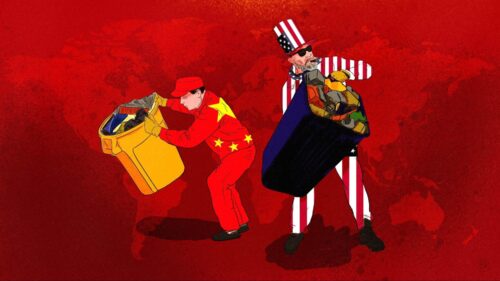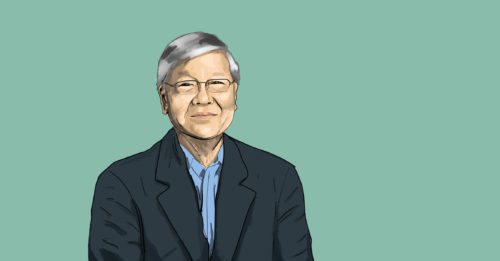A Chinese newspaper in America

Beijing’s effort to expand its soft power overseas through its official media outlets, such as CCTV in America, are well known, but less obvious methods are also deployed. Writing for Foreign Policy (paywall), Bethany Allen-Ebrahimian looks at the supposedly independent Qiao Bao (The China Press), headquartered in Alhambra, California, and its avoidance of topics that might offend the Chinese leadership, such as the death of Liu Xiaobo.
- The publication is described as one of the largest Chinese-language papers in the U.S., with a circulation of around 100,000 in 15 major cities from New York to Los Angeles. It was launched in 1990 by a former journalist for the state-run China News Service.
- Editor-in-chief I-Der Jeng says that the paper does not receive any funding from the Chinese government or the Communist Party, and does not communicate with either regarding its editorial content.
- However, articles originally published by Qiao Bao can be found syndicated on China’s tightly controlled news sites, such as Sina, and on its own website, it lists the English website of the official tabloid Global Times as a partner.
- Qiao Bao’s parent, the California-based Rhythm Media Group, also owns Chinese-language radio stations in Washington State, and has an office in Beijing.
EARLIER THIS WEEK:
A court in Guangxi Province handed Wu Xiangyang 吴向阳 a five-and-a-half-year prison sentence and a 500,000 yuan ($76,000) fine for providing unauthorized VPN services since 2013, a sign of the government’s ongoing harsh crackdown on attempts to get around the Great Firewall.
Following President Moon Jae-in’s conciliatory visit to Beijing last week, relations do not seem to have taken a definitive turn for the better. A South Korean coast guard boat fired 249 warning shots after being swarmed by Chinese fishing boats on Tuesday, and China banned tour groups from traveling to South Korea.
Beijing’s silence surrounding the recent ouster of Zimbabwean dictator Robert Mugabe highlights its growing geopolitical savvy. Brook Larmer describes Mugabe’s expulsion “as the first coup d’état carried out with the tacit approval of the 21st century’s emerging superpower.”
Hua Yong, who made dozens of short videos showing authorities forcing people out of their homes to demolish their neighborhoods, was himself forced out of Beijing after his work gained wide attention. After fleeing to Tianjin and being detained, he made his way to Chengdu, where he may continue to be monitored and investigated.
-
North Korea sanctions palaver
China to back fresh UN sanctions on North Korean fuel / Bloomberg -
Coal, gas, and the environment
Chinese officials point fingers as gasification crisis worsens / Reuters -
Censorship
China considers punishing those who slander heroes and martyrs / Reuters -
Cybercrime
Chinese hackers go after think tanks in wave of more surgical strikes / Ars Technica -
Disappeared artists
France couple in China unreachable after Liu Xiaobo tribute / BBC News





